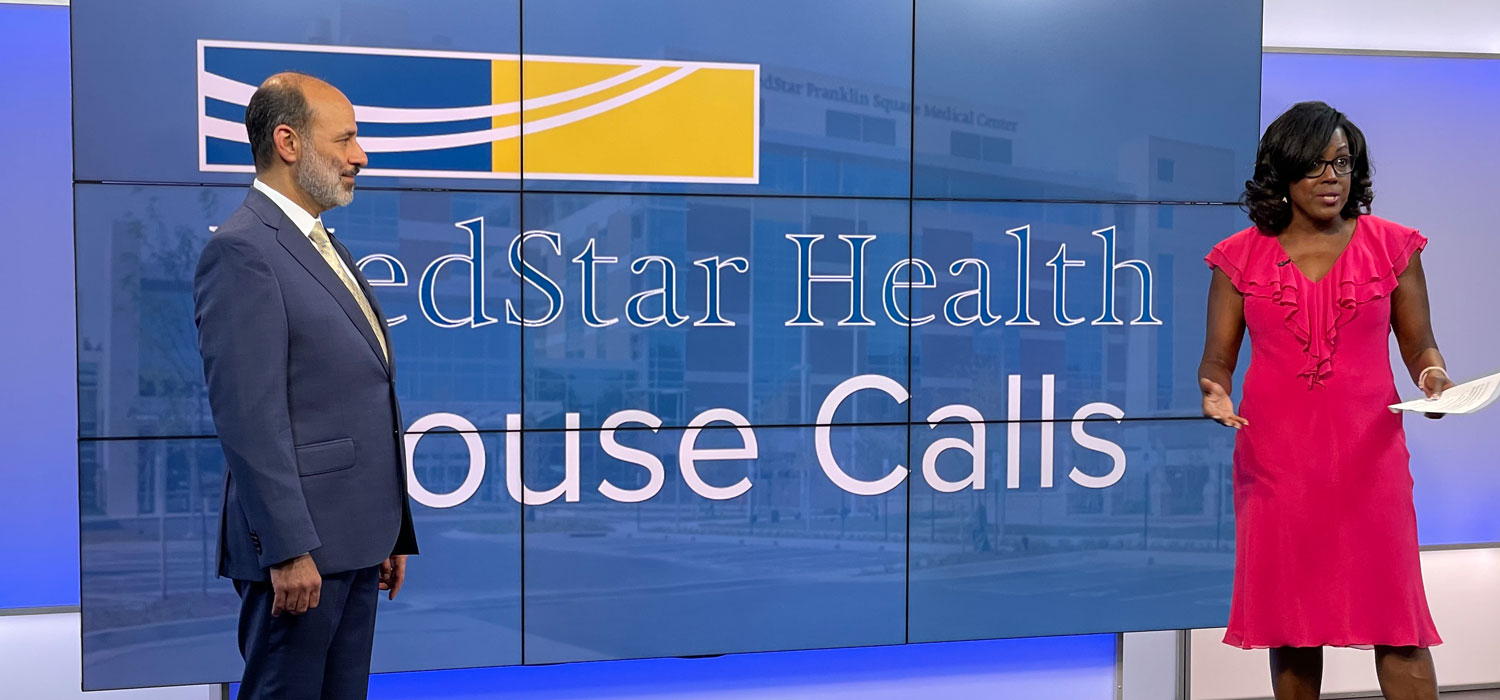
Pictured above are Ziv Gamliel, MD, chief of Thoracic Surgery at The Angelos Center for Lung Diseases at MedStar Franklin Square Medical Center and Kelly Swoope, news anchor at WMAR, answering calls from viewers about smoking and lung health during Lung Cancer Awareness month.
Mark Johnson has been a smoker for his adult life. The 56-year-old real estate agent and Baltimore native has tried to kick the habit countless times over the years but has admittedly struggled.
“I’ve tried to quit at least 30 or 40 times,” he says, adding that the longest he has gone without smoking was two and a half months. He says he has tried everything from hypnosis to chewing gum to prescription medications to quit cigarettes. “The only thing I haven’t tried is acupuncture.”
Johnson, who started smoking when he was 19, said that even though his father’s death in 2005 due to lung cancer was a wake-up call for him to stop smoking, it still has been an ongoing challenge to give up his pack-a-day habit for good.
“I don’t want a doctor to tell me one day that I waited too late,” says Johnson. “I know I need to do something now.”
To help reach more community members like Johnson, MedStar Health began conducting “house calls,” a series of appearances on a local television news station where MedStar Health physicians and nurse practitioners answer calls from viewers about smoking and lung health.
Lung House Calls appeared on Baltimore-based WMAR-TV over two nights in November 2020 for Lung Cancer Awareness Month. Six MedStar Health physicians and nurse practitioners answered nearly 200 calls throughout each two-hour segment.
Find care now
If you are experiencing a medical emergency, please call 911 or seek care at an emergency room.
“These appearances enable us to reach members of the community when they are at home and in a receptive state of mind,” says Linda Rogers, MedStar Health vice president of oncology and related services, Baltimore region. “They have also helped dispel many myths and misconceptions about lung cancer.” One common misconception, she says, is that only smokers get lung cancer.
“What people do not know is that the majority of people who develop lung cancer are ex-smokers,” she says, adding that 10% of those who develop lung cancer have never smoked in their lives.
Lung cancer is highly treatable if caught early. But lung cancer usually doesn’t cause any symptoms until it’s advanced and difficult to treat, says Rogers. Now that there is an effective screening to identify it early, MedStar Health is eager to get the word out and save lives when it is most treatable.
The U.S. Preventive Services Task Force recommends low-dose computerized tomography (CT) scans for the early detection of lung cancer in high-risk individuals—primarily current or former heavy smokers1.
This is based on a National Cancer Institute study, the largest randomized lung screening study ever completed, that showed a reduction in lung cancer death rates of 20% among those screened via CT scan versus those screened by chest x-ray2.
Johnson says he had no idea that such a screening existed but will ask his primary care physician about it during his next visit.
“We believe that the screening of patients at high risk for developing lung cancer should be as commonplace as other cancer screenings like mammograms,” Rogers says. “Our goal is to ensure that these patients have convenient access to this potentially life-saving resource.”
Sources:
1 U.S. Preventive Services Task Force
2 National Institutes of Health













